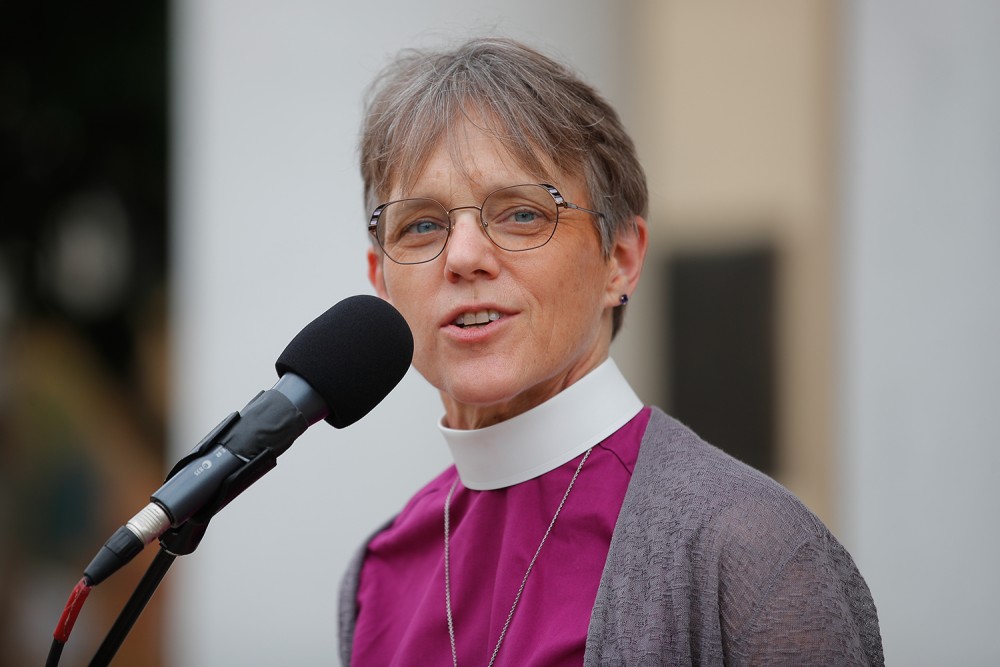Bishop Budde among the Swedes
In September, Episcopal bishop Mariann Edgar Budde will travel to her mother’s homeland at the invitation of the Stockholm Cathedral.

When her mother died late last year, Episcopal bishop Mariann Edgar Budde described her as “a woman of deep faith and courage, of tenderness and vulnerability.” Her mother, Ann Björkman Edgar, who emigrated from Sweden as a young adult, lived most of her life in the United States. But her heart remained in Sweden.
A few weeks after her mother’s death, in a sermon at the National Cathedral in Washington, D.C., Budde displayed a similar deep faith and courage in remarks addressed in part to the newly inaugurated president of the United States, Donald Trump. “In the name of our God,” she said, standing just a few feet from the president, “I ask you to have mercy upon the people in our country who are scared now.” She said that there are LGBTQ children—in Democratic, Republican, and independent families—who fear for their lives. Some immigrants, she said, may not be citizens or have the proper documentation, but the vast majority are not criminals.
“I ask you to have mercy, Mr. President, on those in our communities whose children fear that their parents will be taken away, and that you help those who are fleeing war zones and persecution in their own lands to find compassion and welcome here,” she said. “Our God teaches us that we are to be merciful to the stranger, for we were all once strangers in this land.”




